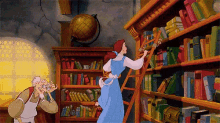Writer's block; the bane of a writer's existence. Getting stuck is never fun and it puts a strain on your creative mind. When this happens, our first instinct to quit.
But for someone who dreams of being a published writer, this isn't an option. So what can you do to get your brain and writing back on track?
Ask ten writers how to deal with writer's block and you'll get ten different answers. There is no one-size-fits-all cure. I had to learn what worked for me through a lot of trial and error, and you probably will too.
Let us slide into your dms 🥰
Get notified of top trending articles like this one every week! (we won't spam you)Does Writer's Block Really Exist?
This is an ongoing debate between writers. Some believe that writer's block is very real and that it not only affects a writer's work but also their confidence. Others hold to the belief that writer's block is an excuse to not write.
I believe writer's block is a legitimate problem. I have had days when no matter how much I pound the keys, the words won't come and I end up feeling like a failure. That isn't at all true.
Failures don't come back later and try again. They just quit. If you keep trying, despite having trouble, you are a success.

Take the Quiz: Which Harry Potter Character Are You?
Find out which character matches your personality!
Figuring Out Why You're Stuck
Sit back for a moment and take a breath. In order to get to the root of the problem, you first have to figure out what is causing you to be unable to write. Is it the writing itself? Is it something else?
Stress-Related Writer's Block
If your writer's block is from stress, don't force yourself to write. Instead, take a break for a little while and do something to get your mind off it. Watch a movie, read a book, go on a long walk, or talk to someone you trust about your writing struggles. All of these are great ways to relax your brain and help you work through what is causing you to feel stressed.
Take a day or two off and allow yourself to recuperate. Pushing through and continuing to write is not a good idea. When you are stressed to the point where writing is difficult, carrying on like nothing is wrong actually lengthens your recovery time.

What to do When You Run Out Of Ideas:
Start a Writer's Notebook
In order to keep all your ideas in one place, write them down in a special place. Buy a notebook or journal to write down any ideas you have and any inspiration you find during your day. If you have a busy schedule, you could even set aside some time each night to journal.

People Watch
Real life is better than fiction. Find a park, coffee shop, or some other place where you can watch people. Take a notebook and write down anything interesting that you see.
Notice how people react to each other. Listen to the way they talk. Some of the best writing ever to grace paper was about everyday people in ordinary situations.
Skip To The Next Part
It's okay to write out of order. If you know what is supposed to happen in another part of your piece, then write that part out. You can always go back later to work on the part you were stuck on. Many writers (including myself) use this method to get their work done.
If you write out of order it might take a little extra editing, but it could help you stay on track.

Research
Google topics related to your writing. Check out books from the library about your topic. You might just discover some new detail that will add depth to your work.

Allow Your Imagination To Roam
Even a non-fiction piece takes a certain amount of imagination. Sit and let yourself daydream for a little while. No longer is it an excuse for why you weren't paying attention in class, now it's a creative lifeline.
Brainstorming maps are also helpful when you are trying to let your imagination run free.
How To Make A Brainstorm Map:
1. Get a blank piece of paper and draw a large circle in the center. Write your main idea.
2. Draw lines coming out of the center with smaller circles on the end of each one. Put your supporting ideas in the smaller circles. You can keep this going for a while, expanding your ideas out as far as you want.

Write Something Else
If all else fails, work on another project. Some writers actually have two projects going at the same time, so that if they get stuck on one project, they can work on the other one.
Usually, I have at least two articles that I'm working on. I switch back and forth between them depending on what I'm in the mood to write about. Sometimes I'll work on them both in the same day, other times I only work on one. I also might work on fiction writing if I'm having trouble with my articles.
Make sure you don't take on too many projects at once. Doing so could lead to the stress-related writer's block previously mentioned.
Remember Why You Wanted To Be A Writer
This is something that we forget too often between the writing, editing, and publishing. What made you fall in love with writing in the first place?
For me, I loved storytelling, be it real or imaginary. I didn't want to make writing my career, however, because I didn't think I could help people that way. It took me a long time to realize that stories do help people.
A journalist can tell the stories of those who have been forgotten by the rest of the world. An author can inspire people to dream and have courage.

I know writer's block can be frustrating and a little scary, but don't let it deter you from becoming an amazing writer. Remember, when you get stuck, it is okay to stop and take a break. You can always take on the world tomorrow.










